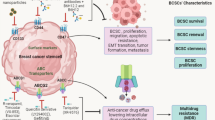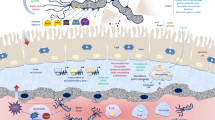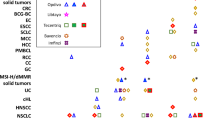Abstract
Currently, increasing attention cancer treatment has focused on molecularly targeted therapies and more recently on immunotherapies targeting immune checkpoints. However, even such advanced treatment may be ineffective. The reasons for this are sought, inter alia, in the human microbiome. In our intestines, there are bacteria that are beneficial to us, but pathogenic microorganisms may also be present. Microbial imbalance (dysbiosis) is now perceived as one of the gateways to cancer. However, it is feasible to use bacteria and their metabolites to restore the natural, beneficial microbiome during oncological treatment. Akkermansia mucinifila, Enterococcus hirae, or Faecalibacterium prausnitzii are bacteria that exhibit this beneficial potential. Greater benefits of therapy can be observed in cancer patients enriched in these bacterial species and treated with anti-PD-1, anti-PD-L1, or anti-CTLA-4 monoclonal antibodies. In this review, we present issues related to the role of bacteria in carcinogenesis and their therapeutic potential “supporting” modern anti-cancer therapies.
Key Points
• Bacteria can be directly or indirectly a cancer trigger.
• Bacterial metabolites regulate the pathways associated with carcinogenesis.
• Intestinal bacteria activate the immune system to fight cancer.


Similar content being viewed by others
References
Amarnani R, Rapose A (2017) Colon cancer and enterococcus bacteremia co-affection: a dangerous alliance. Journal of infection and public health 10(5):681–684. https://doi.org/10.1016/j.jiph.2016.09.009
Basu S, Cheriyamundath S, Ben-Ze’ev A (2018) Cell-cell adhesion: linking Wnt/β-catenin signaling with partial EMT and stemness traits in tumorigenesis. F1000Research, 7, F1000 Faculty Rev-1488. https://doi.org/10.12688/f1000research.15782.1
Boonanantanasarn K, Gill AL, Yap Y, Jayaprakash V, Sullivan MA, Gill SR (2012) Enterococcus faecalis enhances cell proliferation through hydrogen peroxide-mediated epidermal growth factor receptor activation. Infect Immun 80(10):3545–3558. https://doi.org/10.1128/IAI.00479-12
Botticelli A, Vernocchi P, Marini F, Quagliariello A, Cerbelli B, Reddel S, Del Chierico F, Di Pietro F, Giusti R, Tomassini A, Giampaoli O, Miccheli A, Zizzari IG, Nuti M, Putignani L, Marchetti P (2020) Gut metabolomics profiling of non-small cell lung cancer (NSCLC) patients under immunotherapy treatment. J Transl Med. 18(1):49. https://doi.org/10.1186/s12967-020-02231-0
Cao L, Yu J (2015) Effect of Helicobacter pylori infection on the composition of gastric microbiota in the development of gastric cancer. Gastrointest Tumors. 2(1):14–25. https://doi.org/10.1159/000380893
Cheng WY, Wu C, Yu J (2020) The role of gut microbiota in cancer treatment: friend or foe? Gut. 69(10):1867–1876. https://doi.org/10.1136/gutjnl-2020-321153
Coker OO, Dai Z, Nie Y, Zhao G, Cao L, Nakatsu G, Wu WK, Wong SH, Chen Z, Sung JJY, Yu J (2018) Mucosal microbiome dysbiosis in gastric carcinogenesis. Gut. 67(6):1024–1032. https://doi.org/10.1136/gutjnl-2017-314281
Cuevas-Ramos G, Petit CR, Marcq I, Boury M, Oswald E, Nougayrède JP (2010) Escherichia coli induces DNA damage in vivo and triggers genomic instability in mammalian cells. Proc Natl Acad Sci U S A. 107(25):11537–11542. https://doi.org/10.1073/pnas.1001261107
Daillère R, Vétizou M, Waldschmitt N, Yamazaki T, Isnard C, Poirier-Colame V, Duong CPM, Flament C, Lepage P, Roberti MP, Routy B, Jacquelot N, Apetoh L, Becharef S, Rusakiewicz S, Langella P, Sokol H, Kroemer G, Enot D, Roux A, Eggermont A, Tartour E, Johannes L, Woerther PL, Chachaty E, Soria JC, Golden E, Formenti S, Plebanski M, Madondo M, Rosenstiel P, Raoult D, Cattoir V, Boneca IG, Chamaillard M, Zitvogel L (2016) Enterococcus hirae and Barnesiella intestinihominis facilitate cyclophosphamide-induced therapeutic immunomodulatory effects. Immunity. 45(4):931–943. https://doi.org/10.1016/j.immuni.2016.09.009
Daillere R, Vetizou M, Zitvogel L (2017) Impact of E. hirae on the tumoricidal activity of cyclophosphamide. [abstract]. In: Proceedings of the American Association for Cancer Research Annual Meeting 2017; 2017 Apr 1-5; Washington, DC. Philadelphia (PA): AACR; Cancer Res 2017;77(13 Suppl):Abstract nr 4928.
De Almeida CV, Taddei A, Amedei A (2018) The controversial role of Enterococcus faecalis in colorectal cancer. Therap Adv Gastroenterol. 2018; 11: 1756284818783606. doi:10.1177/1756284818783606
De Almeida CV, Lulli M, di Pilato V, Schiavone N, Russo E, Nannini G, Baldi S, Borrelli R, Bartolucci G, Menicatti M, Taddei A, Ringressi MN, Niccolai E, Prisco D, Rossolini GM, Amedei A (2019) Differential responses of colorectal cancer cell lines to Enterococcus faecalis’ strains isolated from healthy donors and colorectal cancer patients. J Clin Med. 8(3):388. https://doi.org/10.3390/jcm8030388
Dzutsev A, Goldszmid RS, Viaud S, Zitvogel L, Trinchieri G (2015) The role of the microbiota in inflammation, carcinogenesis, and cancer therapy. Eur. J. Immunol. 45:17–31. https://doi.org/10.1002/eji.201444972
Earley H, Lennon G, Balfe Á, Coffey JC, Winter DC, O'Connell PR (2019) The abundance of Akkermansia muciniphila and its relationship with sulphated colonic mucins in health and ulcerative colitis. Sci Rep. 9:15683. https://doi.org/10.1038/s41598-019-51878-3
Emamalipour M, Seidi K, Zununi Vahed S, Jahanban-Esfahlan A, Jaymand M, Majdi H, Amoozgar Z, Chitkushev LT, Javaheri T, Jahanban-Esfahlan R, Zare P (2020) Horizontal gene transfer: from evolutionary flexibility to disease progression. Front Cell Dev Biol. 8:229. https://doi.org/10.3389/fcell.2020.00229
Engedal N, Skotland T, Torgersen ML, Sandvig K (2011) Shiga toxin and its use in targeted cancer therapy and imaging. Microb Biotechnol. 4(1):32–46. https://doi.org/10.1111/j.1751-7915.2010.00180.x
Espinoza JL, Minami M (2018) Sensing bacterial-induced DNA damaging effects via natural killer group 2 member D immune receptor: from dysbiosis to autoimmunity and carcinogenesis. Front Immunol. 9:52. https://doi.org/10.3389/fimmu.2018.00052
Frugé AD, Van der Pol W, Rogers LQ, Morrow CD, Tsuruta Y, Demark-Wahnefried W (2020) Fecal Akkermansia muciniphila is associated with body composition and microbiota diversity in overweight and obese women with breast cancer participating in a presurgical weight loss trial. J Acad Nutr Diet. 120(4):650–659. https://doi.org/10.1016/j.jand.2018.08.164
Geravand M, Fallah P, Yaghoobi MH, Soleimanifar F, Farid M, Zinatizadeh N, Yaslianifard S (2019) Investigation of Enterococcus feacalis population in patients with polyp and colorectal cancer in comparison of healthy individuals. Arq Gastroenterol. 56(2):1 41-145. doi: https://doi.org/10.1590/S0004-2803.201900000-28
Gopalakrishnan V, Spencer CN, Nezi L, Reuben A, Andrews MC, Karpinets TV, Prieto PA, Vicente D, Hoffman K, Wei SC, Cogdill AP, Zhao L, Hudgens CW, Hutchinson DS, Manzo T, Petaccia de Macedo M, Cotechini T, Kumar T, Chen WS, Reddy SM, Szczepaniak Sloane R, Galloway-Pena J, Jiang H, Chen PL, Shpall EJ, Rezvani K, Alousi AM, Chemaly RF, Shelburne S, Vence LM, Okhuysen PC, Jensen VB, Swennes AG, McAllister F, Marcelo Riquelme Sanchez E, Zhang Y, Le Chatelier E, Zitvogel L, Pons N, Austin-Breneman JL, Haydu LE, Burton EM, Gardner JM, Sirmans E, Hu J, Lazar AJ, Tsujikawa T, Diab A, Tawbi H, Glitza IC, Hwu WJ, Patel SP, Woodman SE, Amaria RN, Davies MA, Gershenwald JE, Hwu P, Lee JE, Zhang J, Coussens LM, Cooper ZA, Futreal PA, Daniel CR, Ajami NJ, Petrosino JF, Tetzlaff MT, Sharma P, Allison JP, Jenq RR, Wargo JA (2018) Gut microbiome modulates response to anti-PD-1 immunotherapy in melanoma patients. Science. 359(6371):97–103. https://doi.org/10.1126/science.aan4236
Grenda A, Iwan E, Krawczyk P, Chmielewska I, Jarosz B, Reszka K, Kucharczyk T, Wojas-Krawczyk K, Gil M, Słomiany-Szwarc M, Bomba A, Wasyl D, Milanowski J (2020) The search for causes of resistance to pembrolizumab in lung adenocarcinoma with PD-L1 expression - focus on intestinal microbiome. Oncol Clin Pract. 16. [Ahead of print] doi: 105603/OCP.2020.0031
Griffin ME, Espinosa J, Becker JL, Jha JK, Fanger GR, Hang HC (2020) Enterococcus peptidoglycan remodeling promotes immune checkpoint inhibitor therapy. Matthew Hang bioRxiv 2020.08.20.256263. https://doi.org/10.1101/2020.08.20.256263
Guerra L, Cortes-Bratti X, Guidi R, Frisan T (2011) The biology of the cytolethal distending toxins. Toxins. 3:172–190. https://doi.org/10.3390/toxins3030172
Gui Q, Li H, Wang A, Zhao X, Tan Z, Chen L, Xu K, Xiao C (2020) The association between gut butyrate-producing bacteria and non-small-cell lung cancer. J Clin Lab Anal. 34(8):e23318. https://doi.org/10.1002/jcla.23318
Huycke M, Abrams V, Moore D (2002) Enterococcus faecalis produces extracellular superoxide and hydrogen peroxide that damages colonic epithelial cell DNA. Carcinogenesis. 23:529–536. https://doi.org/10.1093/carcin/23.3.529
Iyadorai T, Mariappan V, Vellasamy KM, Wanyiri JW, Roslani AC, Lee GK, Sears C, Vadivelu J (2020) Prevalence and association of pks + Escherichia coli with colorectal cancer in patients at the University Malaya Medical Centre, Malaysia. PLoS One. 15(1):e0228217. https://doi.org/10.1371/journal.pone.0228217
Jafari B, Khavari Nejad RA, Vaziri F, Siadad SD (2019) Evaluation of the effects of extracellular vesicles derived from Faecalibacterium prausnitzii on lung cancer cell line. Biologia 74:889–898. doi.org/10.2478/s11756-019-00229-8
Jinadasa RN, Bloom SE, Weiss RS, Duhamel GE (2011) Cytolethal distending toxin: a conserved bacterial genotoxin that blocks cell cycle progression, leading to apoptosis of a broad range of mammalian cell lineages. Microbiology. 157:1851–1875. https://doi.org/10.1099/mic.0.049536-0
Karpiński TM, Adamczak A (2018) Anticancer activity of bacterial proteins and peptides. Pharmaceutics. 10(2):54. https://doi.org/10.3390/pharmaceutics10020054
Kim JS, Lee MS, Kim JH (2020) Recent updates on outbreaks of Shiga toxin-producing Escherichia coli and its potential reservoirs. Front Cell Infect Microbiol. 10:273. https://doi.org/10.3389/fcimb.2020.00273
Lee E, Lee Y (2018) Prevalence of Escherichia coli carrying pks islands in bacteremia patients. Ann Lab Med. 38(3):271–273. https://doi.org/10.3343/alm.2018.38.3.271
Li Y, Elmén L, Segota I, Xian Y, Tinoco R, Feng Y, Fujita Y, Segura Muñoz RR, Schmaltz R, Bradley LM, Ramer-Tait A, Zarecki R, Long T, Peterson SN, Ronai ZA (2020) Prebiotic-induced anti-tumor immunity attenuates tumor growth. Cell Rep. 30(6):1753–1766. https://doi.org/10.1016/j.celrep.2020.01.035
Liao JB (2006) Viruses and human cancer. Yale J Biol Med. 79(3-4):115–122
Liu X, Lu R, Wu S, Sun J (2010) Salmonella regulation of intestinal stem cells through the Wnt/beta-catenin pathway. FEBS Lett. 584(5):911–916. https://doi.org/10.1016/j.febslet.2010.01.024
Locke WJ, Guanzon D, Ma C, Liew YJ, Duesing KR, Fung KYC, Ross JP (2019) DNA methylation cancer biomarkers: translation to the clinic. Front Genet. 10:1150. https://doi.org/10.3389/fgene.2019.01150
Lopès A, Billard E, Casse AH, Villéger R, Veziant J, Roche G, Carrier G, Sauvanet P, Briat A, Pagès F, Naimi S, Pezet D, Barnich N, Dumas B, Bonnet M (2020) Colibactin-positive Escherichia coli induce a procarcinogenic immune environment leading to immunotherapy resistance in colorectal cancer. Int J Cancer. 146(11):3147–3159. https://doi.org/10.1002/ijc.32920
Lopez-Siles M, Martinez-Medina M, Surís-Valls R, Aldeguer X, Sabat-Mir M, Duncan SH, Flint HJ, Garcia-Gil LJ (2016) Changes in the abundance of Faecalibacterium prausnitzii phylogroups I and II in the intestinal mucosa of inflammatory bowel disease and patients with colorectal cancer. Inflamm Bowel Dis. 22(1):28–41. https://doi.org/10.1097/MIB.0000000000000590
Ma J, Sun L, Liu Y, Ren H, Shen Y, Bi F, Zhang T, Wang X (2020) Alter between gut bacteria and blood metabolites and the anti-tumor effects of Faecalibacterium prausnitzii in breast cancer. BMC Microbiol 20:82. https://doi.org/10.1186/s12866-020-01739-1
Mager D (2006) Bacteria and cancer: cause, coincidence or cure? A review. J Transl Med. 4:14. https://doi.org/10.1186/1479-5876-4-14
Martin OCB, Frisan T (2020) Bacterial genotoxin-induced DNA damage and modulation of the host immune microenvironment. Toxins. 12(2):63. https://doi.org/10.3390/toxins12020063
Melton-Celsa AR (2014) Shiga toxin (Stx) classification, structure, and function. Microbiol Spectr. 2(4):10.1128. https://doi.org/10.1128/microbiolspec.EHEC-0024-2013
Miquel S, Martín R, Rossi O, Bermúdez-Humarán LG, Chatel JM, Sokol H, Thomas M, Wells JM, Langella P (2013) Faecalibacterium prausnitzii and human intestinal health. Curr Opin Microbiol. 16(3):255–261. https://doi.org/10.1016/j.mib.2013.06.003
Moreau P, Cournac A, Palumbo GA, Marbouty M, Mortaza S, Thierry A, Cairo S, Lavigne M, Koszul R, Neuveut C (2018) Tridimensional infiltration of DNA viruses into the host genome shows preferential contact with active chromatin. Nat Commun. 9(1):4268. https://doi.org/10.1038/s41467-018-06739-4
Morissette G, Flamand L (2010) Herpesviruses and chromosomal integration. J Virol. 84(23):12100–12109. https://doi.org/10.1128/JVI.01169-10
Otani S, Coopersmith CM (2019) Gut integrity in critical illness. J Intensive Care. 7:17. https://doi.org/10.1186/s40560-019-0372-6
Ribet D, Cossart P (2015) How bacterial pathogens colonize their hosts and invade deeper tissues. Microbes Infect. 17(3):173–183. https://doi.org/10.1016/j.micinf.2015.01.004
Routy B, Le Chatelier E, Derosa L, Duong CPM, Alou MT, Daillère R, Fluckiger A, Messaoudene M, Rauber C, Roberti MP, Fidelle M, Flament C, Poirier-Colame V, Opolon P, Klein C, Iribarren K, Mondragón L, Jacquelot N, Qu B, Ferrere G, Clémenson C, Mezquita L, Masip JR, Naltet C, Brosseau S, Kaderbhai C, Richard C, Rizvi H, Levenez F, Galleron N, Quinquis B, Pons N, Ryffel B, Minard-Colin V, Gonin P, Soria JC, Deutsch E, Loriot Y, Ghiringhelli F, Zalcman G, Goldwasser F, Escudier B, Hellmann MD, Eggermont A, Raoult D, Albiges L, Kroemer G, Zitvogel L (2018) Gut microbiome influences efficacy of PD-1-based immunotherapy against epithelial tumors. Science. 359(6371):91–97. https://doi.org/10.1126/science.aan3706
Scanu T, Spaapen RM, Bakker JM, Pratap CB, Wu LE, Hofland I, Broeks A, Shukla VK, Kumar M, Janssen H, Song JY, Neefjes-Borst EA, te Riele H, Holden DW, Nath G, Neefjes J (2015) Salmonella manipulation of host signaling pathways provokes cellular transformation associated with gallbladder carcinoma. Cell Host Microbe. 17(6):763–774. https://doi.org/10.1016/j.chom.2015.05.002
Sedighi M, Zahedi Bialvaei A, Hamblin MR, Ohadi E, Asadi A, Halajzadeh M, Lohrasbi V, Mohammadzadeh N, Amiriani T, Krutova M, Amini A, Kouhsari E (2019) Therapeutic bacteria to combat cancer; current advances, challenges, and opportunities. Cancer Med. 8(6):3167–3181. https://doi.org/10.1002/cam4.2148
Sharma P, Kaur S, Kaur R, Kaur M, Kaur S (2018) Proteinaceous secretory metabolites of probiotic human commensal Enterococcus hirae 20c, E. faecium 12a and L12b as antiproliferative agents against cancer cell lines. Front Microbiol. 9:948. doi: https://doi.org/10.3389/fmicb.2018.00948
Shimpoh T, Hirata Y, Ihara S, Suzuki N, Kinoshita H, Hayakawa Y, Ota Y, Narita A, Yoshida S, Yamada A, Koike K (2017) Prevalence of pks-positive Escherichia coli in Japanese patients with or without colorectal cancer. Gut Pathog. 9:35. https://doi.org/10.1186/s13099-017-0185-x
Shui L, Yang X, Li J, Yi C, Sun Q, Zhu H (2020) Gut microbiome as a potential factor for modulating resistance to cancer immunotherapy. Front Immunol. 10:2989. https://doi.org/10.3389/fimmu.2019.02989
Strickertsson JA, Desler C, Martin-Bertelsen T, Machado AM, Wadstrøm T, Winther O, Rasmussen LJ, Friis-Hansen L (2013) Enterococcus faecalis infection causes inflammation, intracellular oxphos-independent ROS production, and DNA damage in human gastric cancer cells. PLoS One. 8(4):e63147. https://doi.org/10.1371/journal.pone.0063147
Sun J, Hobert ME, Duan Y, Rao AS, He TC, Chang EB, Madara JL (2005) Crosstalk between NF-κB and β-catenin pathways in bacterial-colonized intestinal epithelial cells. Am J Physiol Gastrointestinal Liver Physiol. 289(1):G129–G137. https://doi.org/10.1152/ajpgi.00515.2004
Tarashi S, Siadat SD, Ahmadi Badi S, Zali M, Biassoni R, Ponzoni M, Moshiri A (2019) Gut bacteria and their metabolites: which one is the defendant for colorectal cancer? Microorganisms. 7(11):561. https://doi.org/10.3390/microorganisms7110561
Uchida H, Kiyokawa N, Taguchi T, Horie H, Fujimoto J, Takeda T (1999) Shiga toxins induce apoptosis in pulmonary epithelium-derived cells. J Infect Dis. 180(6):1902–1911. https://doi.org/10.1086/315131
van Elsland D, Neefjes J (2018) Bacterial infections and cancer. EMBO Rep. 19(11):e46632. doi: 10.15252/embr.201846632
Viaud S, Saccheri F, Mignot G, Yamazaki T, Daillère R, Hannani D, Enot DP, Pfirschke C, Engblom C, Pittet MJ, Schlitzer A, Ginhoux F, Apetoh L, Chachaty E, Woerther PL, Eberl G, Bérard M, Ecobichon C, Clermont D, Bizet C, Gaboriau-Routhiau V, Cerf-Bensussan N, Opolon P, Yessaad N, Vivier E, Ryffel B, Elson CO, Doré J, Kroemer G, Lepage P, Boneca IG, Ghiringhelli F, Zitvogel L (2013) The intestinal microbiota modulates the anticancer immune effects of cyclophosphamide. Science. 342(6161):971–976. https://doi.org/10.1126/science.1240537
Vizcaino MI, Crawford JM (2015) The colibactin warhead crosslinks DNA. Nat Chem 7:411–417. https://doi.org/10.1038/nchem.2221
Wang Y, Guo W, Wu X, Zhang Y, Mannion C, Brouchkov A, Man YG, Chen T (2019) Oncolytic bacteria and their potential role in bacterium-mediated tumour therapy: a conceptual analysis. J Cancer. 10(19):4442–4454. https://doi.org/10.7150/jca.35648
Wang L, Tang L, Feng Y, Zhao S, Han M, Zhang C, Yuan G, Zhu J, Cao S, Wu Q, Li L, Zhang Z (2020) A purified membrane protein from Akkermansia muciniphila or the pasteurised bacterium blunts colitis associated tumourigenesis by modulation of CD8+ T cells in mice. Gut. 69(11):1988-1997. doi: gutjnl-2019-320105
Whisner CM, Aktipis AC (2019) The role of the microbiome in cancer Initiation and progression: how microbes and cancer cells utilize excess energy and promote one another’s growth. Curr Nutr Rep. 8(1):42–51. https://doi.org/10.1007/s13668-019-0257-2
Wilson MR, Jiang Y, Villalta PW, Stornetta A, Boudreau PD, Carrá A, Brennan CA, Chun E, Ngo L, Samson LD, Engelward BP, Garrett WS, Balbo S, Balskus EP (2019) The human gut bacterial genotoxin colibactin alkylates DNA. Science. 363(6428):7785. https://doi.org/10.1126/science.aar7785
Wojas-Krawczyk K, Kalinka E, Grenda A, Krawczyk P, Milanowski J (2019) Beyond PD-L1 markers for lung cancer immunotherapy. Int J Mol Sci. 20(8):1915. https://doi.org/10.3390/ijms20081915
Xavier JB, Young VB, Skufca J, Ginty F, Testerman T, Pearson AT, Macklin P, Mitchell A, Shmulevich I, Xie L, Caporaso JG, Crandall KA, Simone NL, Godoy-Vitorino F, Griffin TJ, Whiteson KL, Gustafson HH, Slade DJ, Schmidt TM, Walther-Antonio MRS, Korem T, Webb-Robertson BM, Styczynski MP, Johnson WE, Jobin C, Ridlon JM, Koh AY, Yu M, Kelly L, Wargo JA (2020) The cancer microbiome: distinguishing direct and indirect effects requires a systemic view. Trends Cancer. 6(3):192–204. https://doi.org/10.1016/j.trecan.2020.01.004
Xu X, Zhang X (2015) Effects of cyclophosphamide on immune system and gut microbiota in mice. Microbiol Res. 171:97–106. https://doi.org/10.1016/j.micres.2014.11.002
Zhai R, Xue X, Zhang L, Yang X, Zhao L, Zhang C (2019) Strain-specific anti-inflammatory properties of two Akkermansia muciniphila strains on chronic colitis in mice. Front Cell Infect Microbiol. 9:239. https://doi.org/10.3389/fcimb.2019.00239
Zhang T, Li Q, Cheng L, Buch H, Zhang F (2019) Akkermansia muciniphila is a promising probiotic. Microb Biotechnol. 12(6):1109–1125. https://doi.org/10.1111/1751-7915.13410
Zheng Y, Wang T, Tu X, Huang Y, Zhang H, Tan D, Jiang W, Cai S, Zhao P, Song R, Li P, Qin N, Fang W (2019) Gut microbiome affects the response to anti-PD-1 immunotherapy in patients with hepatocellular carcinoma. J Immunother Cancer. 7:193. https://doi.org/10.1186/s40425-019-0650-9
Author information
Authors and Affiliations
Contributions
AG wrote the manuscript and PK made a critical review. Both of authors read and approved the manuscript.
Corresponding author
Ethics declarations
Conflict of Interest
The authors declare that they have no conflict of interest.
Ethical approval
This article does not contain any studies with human participants performed by any of the authors.
Additional information
Publisher’s note
Springer Nature remains neutral with regard to jurisdictional claims in published maps and institutional affiliations.
Rights and permissions
About this article
Cite this article
Grenda, A., Krawczyk, P. Cancer trigger or remedy: two faces of the human microbiome. Appl Microbiol Biotechnol 105, 1395–1405 (2021). https://doi.org/10.1007/s00253-021-11125-0
Received:
Revised:
Accepted:
Published:
Issue Date:
DOI: https://doi.org/10.1007/s00253-021-11125-0




